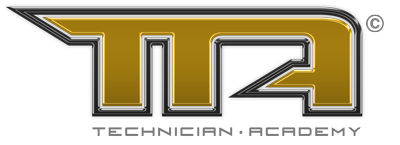I venture to guess we have all played a version of the popular board game, Monopoly, that was originally developed in 1933. The goal of the game is to acquire all the different properties that are positioned around the outside edge of the game board. Then, when your opponent rolls the dice and lands on one of your properties, which can range from a utility company to a vacant lot or to a piece of property occupied by a hotel, they are required to pay a specific fee depending upon what you have occupying the property. If you are the winner of this game, that means your business strategy was successful, and you drove the competition into bankruptcy.
“Whereas a competitive firm must sell at the market price, a monopoly owns its market, so it can set its own prices. Since it has no competition, it produces at the quantity and price combination that maximizes its profits.” – Peter Thiel
Only one?
I see a similar thing happening within the auto parts industry. Even though this is happening on a much larger scale but on a slower rate than the board game, it is still happening. I hope to bring out some points on why I am saying this and how it might change the entire landscape of the automotive aftermarket. I want to express that I truly believe in the free market and the competition it creates. This type of economic system is not fool-proof, but it does provide continued innovation and a steady stream of products to the consumer. In 2016, the automotive industry was attributed for more than 2.2% of the Gross Domestic product of the United States. This is a very large portion that relies upon the transportation of goods and services to maintain other components of the economy. The United States automotive industry is a shining example of why the free market of a capitalistic economy is successful.
“The greatness of America is capitalism, free market capitalism. The exceptionalism of American business.” – Fran Tarkenton
When investment billionaire Carl Icahn purchased Pep Boys chain of repair along with AutoPlus automotive parts stores, some within the parts distribution channels took notice. Then, he controlled interest in Federal–Mogul, arguably one of the larger aftermarket providers of components. He has also announced plans to purchase thousands of individual repair facilities.
Could this be a version of monopoly? I don’t think it is yet, but I question how long it will take for other investors like Icahn to move into the automotive aftermarket industry.
Smart Business
Carl Icahn is not evil or dumb for creating the business plan of controlling his own supply of product for his technicians to install. In fact, when you look at it from a 30,000 foot view, it is the ultimate in quality control. Not only can his repair shops install a product that is built and provided by his manufacturing, but they can also provide feedback to the manufacturer about any flaws or manufacturing errors immediately. This creates a manufacturer with the largest test facility ever. He is controlling the supply and the demand on the outside, seeing nothing but success. The problem could be that, by eliminating the part supply competition, product quality could go the other way. My experience with quality control and a large corporation that must answer to investors shows that quality can sometimes be sacrificed for profits. Or an even greater possibility is if the majority of repair shops within a specific region are owned by this corporate giant, then the price for repairs can be controlled. This would eliminate the ability to seek a competitive bid for repair work within that area.
So What?
Would it really cause an issue for the technician or car owner if a large majority of vehicle repair facilities were to be owned by only a handful of corporations? It could lend itself to price fixing or gouging on common vehicle repairs. This is not unheard of. It seems like every year brings with it new price fixing cases such as in 2014. Bridgestone was fined 425 million for price fixing of parts sold to its customers. This was for parts sold to OE manufacturers not the vehicle owners. As recent as last year a class action lawsuit was settled by 23 manufacturers of aftermarket components. It was determined that they had conspired to fix the price on dozens of parts, such as air conditioning systems components, alternators, automotive bearings, wire harness systems, electric powered steering assemblies, fuel injection systems, heater control panels, instrument panel clusters, occupant safety restraint systems, power window motors and switches, radiators, spark plugs, starters, and window wiper systems.
“A business that makes nothing but money is a poor business.” – Henry Ford
Not Just Icahn
It’s not just Carl Icahn that is disrupting the current landscape of the automotive repair and parts industry. For instance, the acquisition of WellsVE by NGK Spark Plug Co. and the longstanding name of TRW automotive was purchased by the ZF Group a German transmission maker. Then in May of 2017, Fisher Auto Parts announced the acquisition of Hoffman Brothers that had 10 company stores and one warehouse. At that time, Herb Godschalk, co-president of Fisher Auto Parts, announced they were striving for future annual growth to be at least 20%. Then Genuine Parts Company announced the purchase of Merle’s Auto Supply by its U.S Automotive Parts Group. And it’s not just Fisher or GPC that are acquiring more storefronts. Recently, O’Reilly and Bumper to Bumper have both announced the purchases of small parts distribution channels. The latest purchase of Icahn’s Pep Boys was the AutoMaster Service Center, an eight-bay repair shop in Southington, Connecticut, which is scheduled to be transformed into a full-service Pep Boys center.
Importance of a competitive market.
As shop owners and technicians, it is important that we find the best parts for our customers’ vehicles. The way it has been up till now is that we have been able to shop for the best deal on the same quality components for our customers. Though in today’s marketplace it’s easy for your customer to price shop online. For instance, let’s look at a basic product that everyone sells: a spark plug. I gave my counterman a 05 Chevy Silverado 5.3L as the application. The reason I choose this item is many years ago I had a lady bring me a 1972 AMC Gremlin with a 304 and asked me to change the plugs and wires. When she come to pick it up, she went over the top about the price I had charged her for the plugs. Even though this was not a terrible job it did have its frustrations and yes, I did charge suggested retail from my local supplier for the plugs. Her main complaint was she had bought plugs for the vehicle at a local big box (Walmart), and they were a lot cheaper. The key to this was she had determined the job was too difficult to do herself and had returned the plugs to the big box. Did I lose any sleep over her complaint and the subsequent loss of her minimal business? Short answer: only briefly.
So, in our request for a spark plug for the Silverado part # AC 41-962 here are the prices:
- Sells across the counter at $6.88
- Retail list is $11.20
- Jobber price $4.35
- Amazon $5.85 (comparable to what the big box was in past years)
Will You Be Questioned?
No, I don’t believe you will be questioned on something like a spark plug, but I do think your customer is going to use the internet to check the price on something like a A/C compressor or alternator. Like in the Monopoly game, you don’t have a choice which property the dice roll picks for you, but you do have to pay whatever the charge is for that property. It could become the same in the future of which brick and mortar store you purchase from. Therein lies one of my concerns for the future of auto repair industry. With the continued consolidation of the brick and mortar distribution channels, our choices become limited on where we purchase. This could lend itself to frustration for all parties. A vehicle owner frustrated about a part’s price and why it was not the price they found on Amazon or possibly even the parts stores website aggravates the shop owner, because of the customer and because of the loss of revenue from a better mark-up on the part. Technicians are likely to absorb the brunt of the shop owner wanting the bay to turn faster to overcome the lost part revenue.
Is it a Monopoly Yet?
No. Could it be in five years? Probably not, but eight years? Possibly. How do we as shop owners and technicians reduce the frustration? One word: EDUCATION. We educate ourselves on best business practices, customer service, and we must learn how to educate the customer. As shop owners, you are in a very competitive market and anything you can do to reduce inefficiencies the shop will benefit. As technicians work with the shop owner to improve the process, this will make your day-to-day better also.
“Education is the passport to the future, for tomorrow belongs to those who prepare for it today.” – Malcolm X
When Will We Pass Go?
I am sure you are aware that in the actual game of Monopoly, every time you make it completely around the board you collect two hundred dollars. I am not sure when this industry will get to that point, if ever. What you can be assured of in this industry is experiencing a major transformation that is not going to soon stabilize. By ignoring this changing landscape, your future will not improve, so be aware, be involved and maybe one day you will pass GO.
“The secret of getting ahead is getting started”. – Mark Twain
I encourage your comments or you can always contact me directly at [email protected] or 812-618-6101.
Cited sources:

